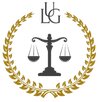Best Trusts Lawyers in Saskatoon
Share your needs with us, get contacted by law firms.
Free. Takes 2 min.
List of the best lawyers in Saskatoon, Canada
About Trusts Law in Saskatoon, Canada
Trusts law in Saskatoon, Canada, revolves around the management, administration, and distribution of assets placed within a trust. A trust is a legal arrangement where one party, the trustee, holds and manages assets for the benefit of another party, the beneficiary. Trusts can be utilized for various reasons, including estate planning, wealth preservation, and tax minimization. In Saskatoon, trusts are governed by both federal and provincial laws, ensuring they are managed properly and beneficiaries’ rights are protected.
Why You May Need a Lawyer
There are several scenarios where seeking legal advice regarding trusts can be beneficial:
- Estate Planning: Setting up a trust as part of your estate planning strategy to efficiently manage and distribute your assets after your death.
- Minor Beneficiaries: Establishing a trust to manage assets for minors who are unable to handle their financial matters.
- Tax Efficiency: Utilizing trusts to minimize tax liabilities and optimize financial benefits for beneficiaries.
- Asset Protection: Protecting your assets from creditors or legal claims through the use of a trust.
- Dispute Resolution: Handling disputes among beneficiaries or trustees that may arise from trust administration.
In these and other complex situations, a lawyer can provide necessary guidance and ensure compliance with relevant laws.
Local Laws Overview
The Saskatchewan Trustee Act is the primary legislation governing the creation and management of trusts in Saskatoon. This act outlines the duties and responsibilities of trustees, stipulations for trust formation, and rules on how trusts should be administered. Additionally, common law principles also affect trust laws, influencing the fiduciary duties of trustees and the rights of beneficiaries. It's essential for anyone involved in the creation or management of a trust to understand these regulations to ensure legal and efficient administration.
Frequently Asked Questions
What is a trust?
A trust is a legal entity created to hold assets for the benefit of another. It involves three parties: the settlor, who establishes the trust; the trustee, who manages the trust; and the beneficiary, who receives benefits from the trust.
Can a trust be changed once it’s established?
It depends on the type of trust. Revocable trusts can be altered or terminated by the settlor, whereas irrevocable trusts generally cannot be changed after they have been established.
How are trusts taxed in Canada?
Trusts are subject to income tax in Canada. The taxation can be complex, and it often depends on the type of trust and how income is distributed. Consultation with a tax expert or lawyer is advisable for detailed guidance.
What is the role of a trustee?
A trustee is responsible for managing the trust’s assets, ensuring the trust is administered according to its terms and in the best interests of the beneficiaries.
How can a trust protect my assets?
A trust can protect your assets by legally separating them from your personal ownership, potentially shielding them from creditors and legal claims.
Do I need a lawyer to set up a trust?
While it's not legally required to have a lawyer, professional legal advice ensures your trust is set up correctly and in accordance with provincial and federal laws, which can prevent future disputes.
How can trusts benefit estate planning?
Trusts can manage estate distribution, minimize tax burdens, protect assets, and ensure your wishes are fulfilled regarding how your estate is handled after your death.
What is the difference between a testamentary trust and a living trust?
A testamentary trust is created through a will and takes effect upon the settlor’s death, while a living trust is established during the settlor’s lifetime.
What happens if a trustee breaches their duties?
If a trustee fails to adhere to their duties, legal action may be taken by the beneficiaries to rectify any breaches, possibly including damages or removal of the trustee.
Who can be a beneficiary of a trust?
Beneficiaries can be individuals, organizations, or even subsequent trusts, as designated in the trust agreement.
Additional Resources
The following resources may prove useful for those seeking more information on trusts:
- The Law Society of Saskatchewan: Provides resources and directories to find professional legal help.
- Public Legal Education Association of Saskatchewan (PLEA): Offers educational material on various legal topics, including trusts and estates.
- Canada Revenue Agency (CRA): For information on the taxation of trusts.
- The Court of Queen’s Bench for Saskatchewan: For information regarding legal proceedings that may involve trust matters.
Next Steps
If you believe you need legal assistance related to trusts, consider the following steps:
- Assess Your Needs: Clearly identify why you need legal assistance and the particular issues you are facing.
- Consult a Lawyer: Seek a lawyer specializing in trusts and estates to discuss your case. They can provide expert advice and ensure compliance with relevant laws.
- Gather Documentation: Gather any relevant documents, such as the trust deed, amendments, and communications relating to the trust, to present to your lawyer.
- Follow Legal Advice: Implement any recommended legal strategies to address your trust issues effectively.
Lawzana helps you find the best lawyers and law firms in Saskatoon through a curated and pre-screened list of qualified legal professionals. Our platform offers rankings and detailed profiles of attorneys and law firms, allowing you to compare based on practice areas, including Trusts, experience, and client feedback.
Each profile includes a description of the firm's areas of practice, client reviews, team members and partners, year of establishment, spoken languages, office locations, contact information, social media presence, and any published articles or resources. Most firms on our platform speak English and are experienced in both local and international legal matters.
Get a quote from top-rated law firms in Saskatoon, Canada — quickly, securely, and without unnecessary hassle.
Disclaimer:
The information provided on this page is for general informational purposes only and does not constitute legal advice. While we strive to ensure the accuracy and relevance of the content, legal information may change over time, and interpretations of the law can vary. You should always consult with a qualified legal professional for advice specific to your situation.
We disclaim all liability for actions taken or not taken based on the content of this page. If you believe any information is incorrect or outdated, please contact us, and we will review and update it where appropriate.










